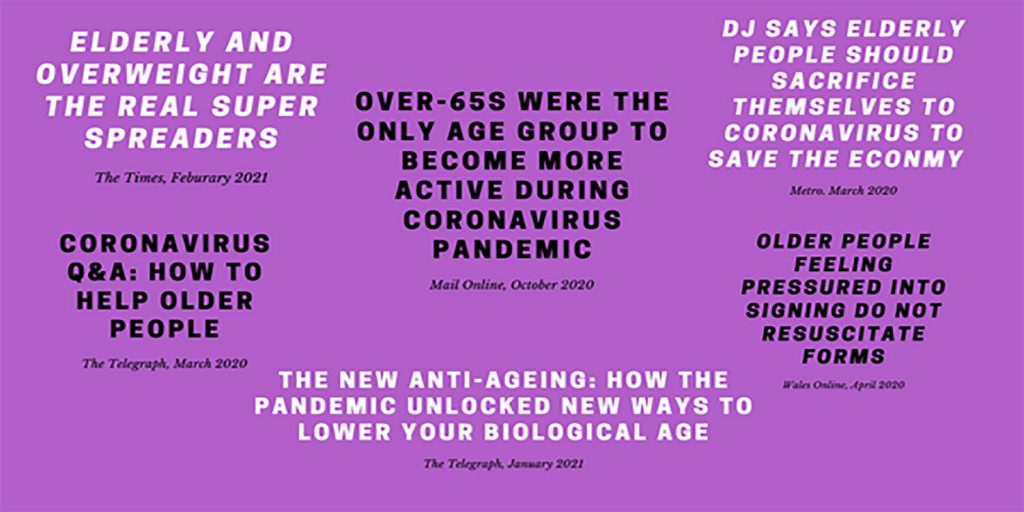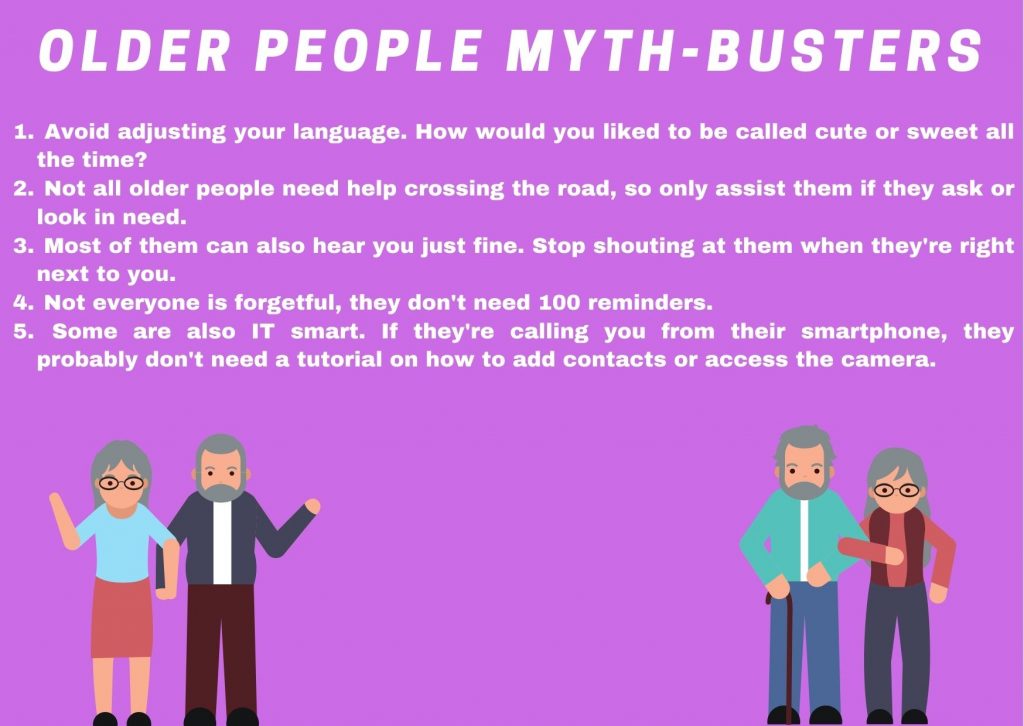Over 60% of articles that spoke about the elderly during the pandemic adopted a negative tone, these seriously damaged the confidence of older people in Wales

You probably only have an opinion of a couple of people in your life that are over the age of 65. These could be your grandparents, mum, dad or a family friend. You usually see them on a Sunday afternoon and are greeted with a cup of tea and a biscuit as you walk through the door.
However, have you recently asked them how they’re feeling and not just made small talk while diving into their biscuit jar?
Since the start of the Covid-19 pandemic, the media stereotypically treats older people in the same way.
During lockdown research found that 67% of the headlines written about older people portray them in a negative way. There was a limited representation of their voices which created the image of older people being dependent and frail.
As a result, their self-confidence has plummeted and they have isolated themselves.
From the way I have been represented, I don’t want to show my face in public
John Roberts
John from Caerphilly, said he has read so many negative headlines about older people that he is now afraid to be seen in public.ver 60% of articles that spoke about the elderly in 2020 and 2021 adopted a negative tone, these seriously damaged the confidence of older people in Wales
The old people’s commissioner, Heléna Herklots and the deputy minister of social services, Julie Morgan, are working to change the way old people in Wales are spoken about and are aiming to make the country a safe and inclusive place to grow old.
Addressing ageist attitudes
The way older people are spoken about in the media can have harmful impacts on people’s attitudes to ageing, how the elderly are viewed in society and the way they view themselves.
In July 2021, Heléna published a report titled Portrayal of Older People in News Media. This report was due to be published in March 2020, but was postponed because of the pandemic.
However, the amount of negative headlines regarding older people increased during the pandemic, impacting their mental health.
Helena said, ‘”Two-thirds of the news stories we analysed portrayed older people in a negative way, painting a picture of them being in ill-health, victims or being a burden to society.”
“Unfortunately during coronavirus, we have seen more examples of news articles that use ageist language and attitudes,” she said.
Some examples include The Times headline: ‘Elderly and the overweight are the real super-spreaders of Covid-19’ in February 2021, and WalesOnline publishing: ‘Older people feeling pressured into signing Do Not Resuscitate forms’.
John Roberts, a 70-year-old from Caerphilly, said he never used to care about his age. Before the pandemic, he took regular walks around Cardiff and would sometimes play golf with his friends. However, after he was stuck inside for so long with nothing to do other than read the paper, he began to believe all the things the media were saying about him were true.
“I’ve read a lot of articles that have presented the over-65s as weak and vulnerable and thought to myself, perhaps I am weak because I’m now in my 70s,” he said.
Fighting back
In response to Heléna’s report Julie Morgan, the deputy minister of social services, produced Age Friendly Wales. In this report she outlines how we can help to encourage people to speak positively about ageing.
It is estimated that by 2038, one in four people in Wales will be over the age of 65, so we must start working now to make it the best country to grow old in.
Age Friendly Wales provides four aims of how we can accomplish this. One of these is encouraging intergenerational contact.
Julie believes, “it is vital that we use the emotional bonds we have with younger people to build mutual respect.”
She adds, “if we can show younger people that ageing isn’t negative, then perceptions of older people will shift to become positive.”
Charity work
Helena has been working with charities around Wales to ensure that older people are seen in a positive way.
On 10 December, 2021 Age Cymru organised a photo exhibition called ‘This is Older’.
Victoria Lloyd, the chief executive of Age Cymru, says she wanted to create this to display that, “There is no such thing as a typical old person.” She collected 12 photographs of people aged 65-80 and projected them at the National Library in Aberystwyth.
Photos ranged from older people photographing themselves in gardens with their family, to being out on long walks. They wanted to rebel against the stereotype of them as frail and showcase themselves as sociable and active.
Likewise, Age Cymru have also launched their campaign ‘Friend in Need’. During lockdown the charity called out for younger people to volunteer to phone the elderly.
Catherine and Remo, two volunteers, signed up at the beginning of 2020 and still carry on today. Catherine says, “the old man I speak to never fails to make me laugh. I always come away from our calls feeling as though I’ve learnt something new.”
She says that she doesn’t fear ageing, but is fact looking forward to it, “I can’t wait to be that interesting one day and impart my wisdom onto others.”
Authorities and charities in Wales will continue to work to change the way age is spoken about. Jeff Hawkins, the executive officer of Age Connects, Cardiff, has said that working with older people everyday has made him realise that age is just a number. He focuses on the stories they have to tell rather than how old they are.

